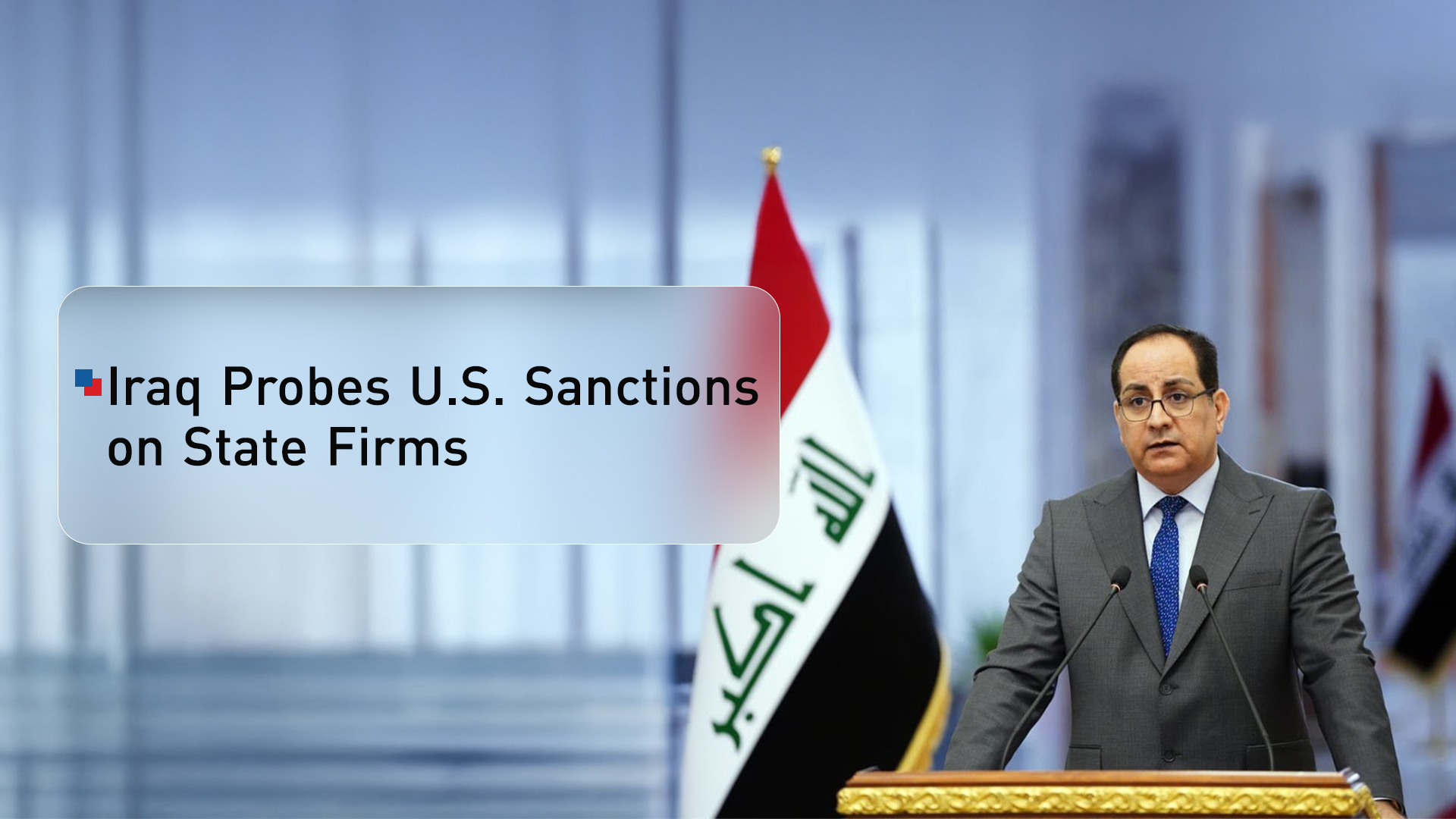Iraq Condemns US Sanctions on State-Owned Firm as “Unilateral and Unjustified”
Iraq Warns U.S. Sanctions Threaten Strategic Partnership, Launches Inquiry into Targeted Entities

ERBIL (Kurdistan24) — The Iraqi government expressed deep regret on Saturday over the recent US Treasury Department decision to impose sanctions on the state-owned Al-Muhandis General Company and several other entities, describing the move as unilateral, unjustified, and contrary to the spirit of partnership between Baghdad and Washington.
In an official statement, government spokesperson Bassem Al-Awadi said Iraq remains firmly committed to the rule of law and to all international agreements and treaties it has signed, stressing that Baghdad acts in accordance with its responsibilities as a member of the international community.
“The government is following with great concern the US Treasury’s latest decisions to sanction Al-Muhandis General Company and other entities on the grounds of alleged links to parties under American legal measures,” the statement read.
Baghdad described the move as “highly regrettable” and said it “contradicts the principles of friendship and mutual respect that have long characterized bilateral relations.”
The statement warned that making such decisions without prior consultation “sets a negative precedent” in the conduct of relations between allied nations.
Iraq Calls for Cooperation, Not Unilateral Action
The Iraqi government called on its international partners, particularly the United States, to enhance cooperation in sharing technical and financial information — especially as Iraq continues implementing sweeping structural reforms in its banking and financial sectors.
"Prime Minister Mohammed Shia’ Al-Sudani has ordered the formation of a high-level national committee — including representatives from the Ministry of Finance, the Federal Board of Supreme Audit, the Integrity Commission, and the Central Bank of Iraq — to review the case and submit a report with recommendations within 30 days," the statement read.
The government stressed its responsibility to protect civilian workers and vital projects connected to the sanctioned companies, ensuring the uninterrupted delivery of services and safeguarding the rights of employees not involved in any activities under scrutiny.
Reaffirming Iraq’s Sovereignty and Legal Integrity
The statement reiterated Iraq’s rejection of any economic or financial activities operating outside the national legal framework or those used to fund armed groups or undermine national interests.
Baghdad emphasized that it remains committed to transparent governance, the protection of public funds, and the principle that no entity is permitted to act outside the authority of the state.
“The government will conduct a full investigation into these allegations as part of its institutional and economic reform path,” Al-Awadi said, adding that the process aims to strengthen public trust, reinforce state institutions, and promote fair and sustainable development.
He concluded by reaffirming Iraq’s determination to continue pursuing its national development agenda, fostering a transparent and investment-friendly economic environment, and maintaining balanced relations with all regional and international partners in a manner that serves the country’s sovereignty and the interests of its people.
U.S. Treasury Targets Iran-Backed Networks in Iraq
According to a press release published by the U.S. Department of the Treasury on Thursday, the Office of Foreign Assets Control (OFAC) has stepped up measures against Iran-backed networks operating in Iraq, targeting individuals and companies that support the Islamic Revolutionary Guard Corps (IRGC) in evading sanctions, smuggling weapons, and conducting attacks.
"These groups, including the U.S.-designated foreign terrorist organization Kata’ib Hizballah, exploit Iraqi institutions and the economy to generate revenue and undermine security," read the press release.
OFAC emphasized that its actions aim to dismantle the financial and logistical networks enabling these militias, highlighting the role of Iraqi banks and militia-run conglomerates such as Muhandis General Company in facilitating Iran’s strategic objectives.
The Treasury Department noted that key targets of the sanctions include Iraqi banking executives and business entities directly linked to the IRGC-Qods Force (IRGC-QF) and Kata’ib Hizballah.
These actors allegedly launder funds, divert government contracts for illicit revenue, and operate intelligence networks gathering information on U.S. forces.
Entities such as Muhandis General Company and its commercial front, Baladna Agricultural Investments, were cited for channeling financial resources and weapons to militias.
Under Executive Order 13224, OFAC has blocked the property and interests of the designated persons and entities, prohibiting U.S. persons from engaging in transactions with them and warning that violations could trigger civil, criminal, or secondary sanctions.